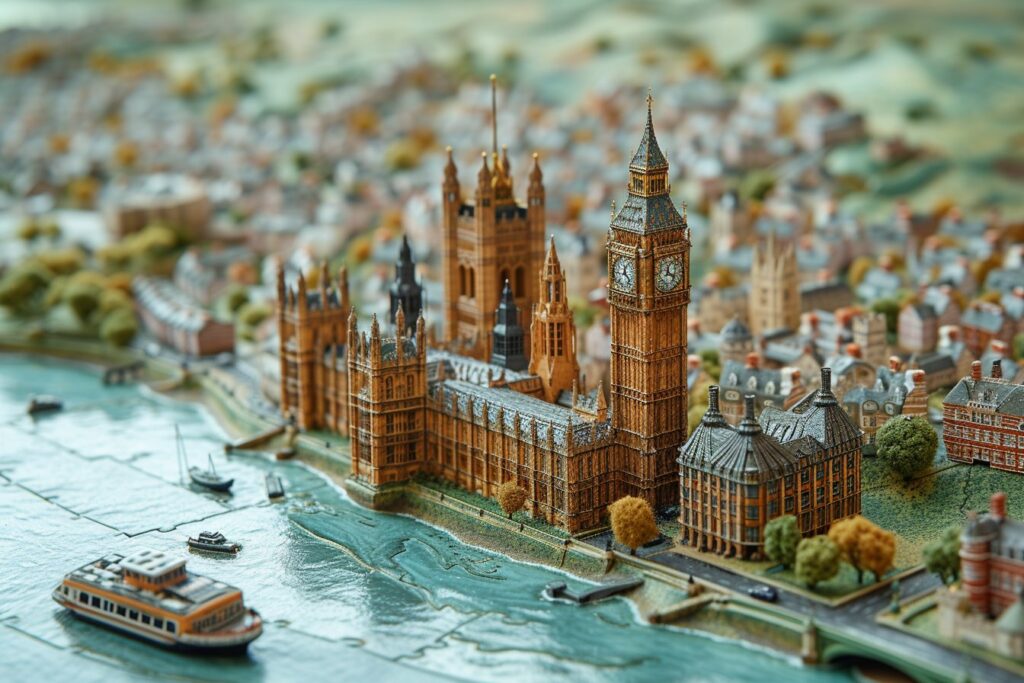The United Kingdom (UK) has always been a popular destination for individuals seeking new opportunities, better lifestyles or simply wanting to experience life outside their home countries. However, before taking the plunge and moving to the UK, it is essential to understand the living costs associated with this region. This article will guide you by detailing the average expenses required to live comfortably and make your move as smooth as possible.
What are the key factors affecting cost of living in the UK?
Cost of living in the UK varies significantly depending on several factors, including:
- Location: The UK comprises four countries, England, Scotland, Wales and Northern Ireland, each having its own unique culture, lifestyle and cost of living factors. Major cities like London and Edinburgh typically have higher living costs than the rest of the UK, mainly due to housing demands and higher wages.
- Housing: Rental and property prices vary based on the size, type and location of accommodation choosen. Prices also change if one chooses to live in city centers vs. suburban areas.
- Transportation: Depending on whether you rely on public transport, own a car, or use ride-sharing services, transportation costs can differ widely.
- Lifestyle choices: Grocery shopping, dining out, entertainment, clothes, hobbies and travel preferences will impact your personal budget to varying degrees.
- Education: If you have children, the school fees for private institutions might be a significant part of your expenses.
Average Monthly Expenses Breakdown
Accommodation
It’s no secret that housing costs carry the most weight in calculating living expenses. As expected, London takes the lead among UK cities with an average monthly rent of £1,500 for a one-bedroom apartment in city centre and around £1,300 outside the city centre. Smaller towns and less populated areas may have relatively more affordable rental prices, falling between £500 and £800 per month.
If you prefer to own a property, expect to pay higher prices, especially in cities like London, Manchester and Brighton, where demand far outstrips supply. The average price of a property in England varies from £250,000 to over £500,000. In contrast, houses in Scotland, Wales, and Northern Ireland are generally more affordable, averaging £150,000 to £300,000.
Transportation
The need for personal transportation predominantly depends on the location (city vs. suburb) and lifestyle choices. Public transport systems such as trains and buses are extensively used within large cities, making car ownership less pertinent. A local transportation pass can cost anywhere between £50 and £200 a month depending on the city and zones covered.
Car owners should consider fuel prices (£1.20 – £1.40 per litre), maintenance, insurance and parking fees when estimating monthly transportation expenses. If you prefer using ride-hailing services like Uber or Lyft, your costs will be based on distance travelled, time of day, and demand for such services, which could ultimately add up to substantial amounts.
Utilities and Communications
Basic household utilities will typically cost an individual or small family between £100 and £200 per month. This includes gas, electricity, water, sewerage and waste disposal. Internet and mobile phone bills depend on individual usage but typically range from £20 to £50 monthly for each of these services.
Food and Groceries
Considering a significant share of an individual’s budget is allocated to food, adopting good habits like cooking at home and shopping from affordable supermarkets can save a lot on expenses. A single person might spend around £150 – £250 per month on groceries, while eating out could range from £10 – £40 per meal plus tip depending on the type of restaurant.
Educational Expenses
If you have children attending private schools, this will be another crucial consideration in your cost of living calculations. Private school fees vary widely, with schools in London charging up to £25,000 per year while those outside London demanding fee levels from £8,000 to £18,000 per year. Note that government schools are generally free; however, there might be some additional expenditures involved, such as uniforms, activity costs and school trips.
Calculating Your Monthly Budget
In conclusion, determining how much income is needed to live comfortably in the UK mainly depends on personal preferences, lifestyle choices and location. Single individuals, or couples without children, can expect to allocate approximately:
- Housing: Between £500 and £1,500 per month
- Transportation: Between £50 and £200 per month (public transport) or more if owning a car
- Utilities and Communications: Between £100 and £200 per month
- Food and Groceries: Between £150 and £250 per month
- Additional Expenses: Savings and allowances need to be made for education, hobbies and lifestyle choices such as travel and entertainment
Do thorough research on areas and cities to ascertain living expenses aligning with individual requirements. It ultimately comes down to striking a balance between meeting necessities and maintaining a good quality of life while not over-extending the budget.


